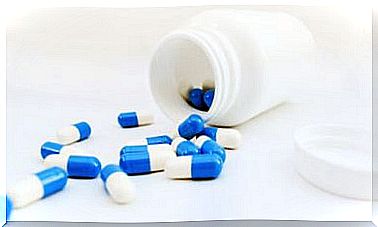What Happens To Your Body If You Are Dehydrated?
Dehydration occurs when there is a reduction in the amount of fluids the body requires to function in optimal conditions. Your attention is decisive to avoid negative health consequences.

Dehydration does not only occur due to low water consumption. Although this is one of its main causes, many people suffer from its effects as a result of other health problems. It is important to know what the risks are, since a low level of fluids can lead to unwanted consequences.
And it is that, although many ignore it, water plays a very important role in vital functions. This constitutes a large part of the composition of the human body and is involved in essential processes such as the regulation of body temperature, kidney function and the elimination of toxins.
Why does dehydration occur? What are its effects on the body? Far from being a minor problem, the decrease in fluids carries a series of health hazards.
On this occasion, we will tell you what its effects are and why it is necessary to take this factor into account.
What is dehydration?

Dehydration is a state that develops when there is an excessive loss of water in the body, without being replaced. In turn, it produces an imbalance in the levels of electrolytes, which intervene in the functions of some organs. The body manifests it in a mild way since between 1 and 2% of the total water content is lost.
However, as it becomes more severe, many of the internal functions are reduced and health problems increase. The risk of suffering from this condition rises with increased sweating due to high temperatures and infections. It can also be caused by low fluid intake, especially when the body has a higher need.
Why does dehydration occur?
Each case can have a different cause or several related factors. In general, it occurs because the body eliminates more fluids than it requires. This may be due to low water consumption, or because there is an alteration in its functions. The most common cases are those that occur in summer or after doing too much physical activity.
However, it can be caused by loss of the body through vomiting and diarrhea, or excessive consumption of some diuretics and medications. On the other hand, this problem can accompany certain diseases. However, the risk is reduced when the necessary measures are taken to counteract it. These diseases include:
- Hyperhidrosis
- Mellitus diabetes.
- High blood pressure.
- Urinary infections.
- Digestive problems.
Effects of dehydration on the body
The consequences of dehydration in the body can vary depending on the amount of fluid that has been lost. In most cases, the sensation of thirst is the first manifestation of a failure in body hydration. However, symptoms can vary depending on their severity: mild, moderate or severe.
Mild or moderate dehydration
The level of mild or moderate dehydration is the most common in the population. Its causes range from a careless consumption of water, to excessive physical activity, minor infections and exposure to extremely hot climates. Effects on the body include:
- Weakness and fatigue
- Headaches.
- Muscle cramps.
- Cloudy urine with a strong odor.
- Dryness and coldness of the skin.
- Changes in urination habits.
- Prolonged feeling of thirst and dry mouth.

Severe dehydration
When dehydration progresses to a high severity level, the body loses more than 5% of total fluids. This situation can cause serious damage to vital organs, which is why the timely intervention of a professional is necessary.
In general, poor control of this type of dehydration can lead to chronic illness or even death. The symptoms are as follows:
- High fever.
- Hollow eyes.
- Fast breathing.
- Low blood pressure.
- Dry and wrinkled skin.
- Infrequent urination.
- Delirium and unconsciousness.
- Confusion or irritability.
- Fast heartbeat
- Dizziness and fainting
- Cloudy urine and urinary infections.
- Drowsiness and sleep disturbances
How to avoid dehydration?

The best way to avoid dehydration is by ensuring optimal daily water intake, especially after losing fluids. Likewise, in case of diarrhea, vomiting or similar illnesses, it is advisable to consume sources of electrolytes. Creating a balance between fluids and mineral salts is key to avoiding complications.
Other measures to consider are the following:
- Consume fruits and vegetables rich in water.
- Also, drink isotonic drinks.
- Also, drink coconut water and natural drinks.
- Furthermore, avoid consuming sugary sodas and alcoholic beverages.
No one is exempt from suffering a health complication from dehydration. Therefore, any warning sign should be attended to immediately by a doctor. Indeed, the most serious cases should be treated with intravenous solutions.
Listening to the body’s signals is essential for timely and successful treatment.









